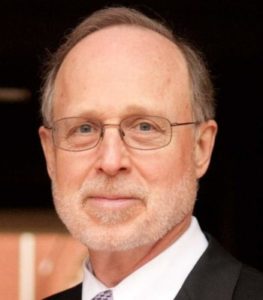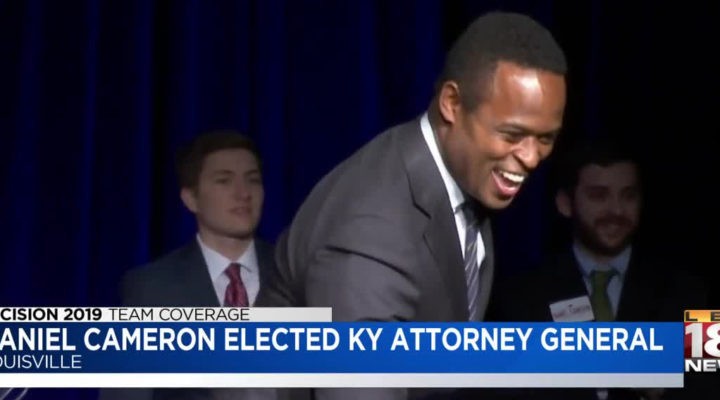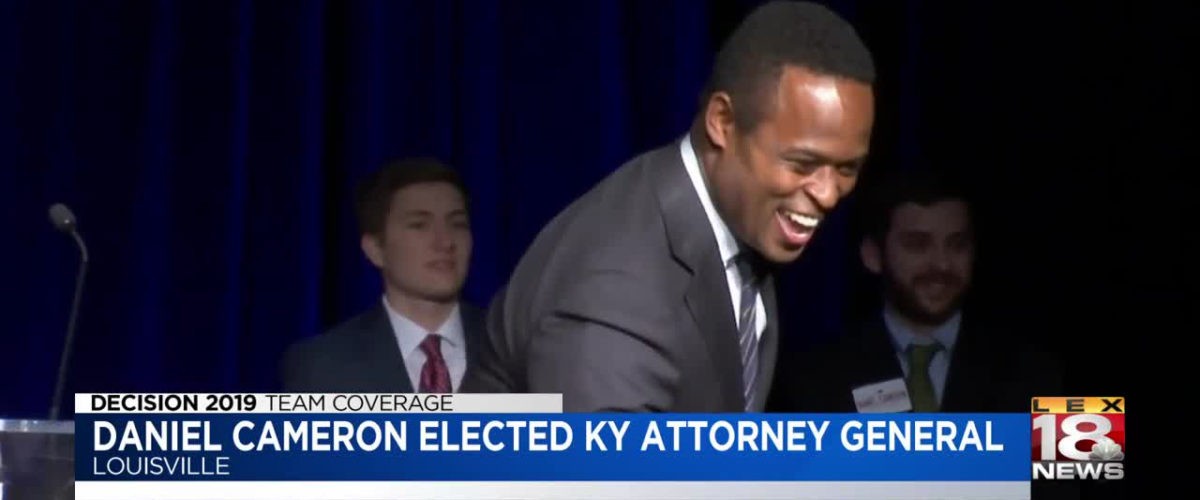“There is always a place for posers who are willing to sell out their own people,” my Facebook post read. “Gain the world, and lose your soul.”
The reference was to Daniel Cameron, the Kentucky attorney general, who had just announced that no one would be indicted in the shooting death of Breonna Taylor. The ABC News article referenced Cameron’s address to the Republican National Convention: Kentucky AG Daniel Cameron pitches President Trump as ‘best for this country’ amid racial strife. If Cameron, a Black Republican, wanted to maintain his hold on Donald Trump’s coattails, I was suggesting, he had to place his imprimatur on Breonna’s violent death.

Alan Bean
My cynical take was endorsed by my Facebook friends, with one adamant exception. “Being an individual thinker with his own thoughts doesn’t mean (Cameron) is selling out his race or his people,” my lone critic said. “I was under the impression Black people could think for themselves. Democrats don’t own Black people; they are free to be conservative if they choose.”
The man had a point. I had labeled a man I knew hardly anything about. I saw a Black protégé of Mitch McConnell who says nice things about the president and assumed he was a sell-out.
Some would insist that Cameron’s soulful embrace of Trump and McConnell has nothing to do with race. In elite evangelical circles, it is often argued that our conclusions are determined by our preconceptions. Those who begin from “a biblical worldview” will see people like the president and the senior senator from Kentucky as defenders of Christian culture. We may not agree with everything they do or say, the argument goes, but we celebrate the end result.
This outlook comes with a flipside. Those who see Cameron as a race traitor are enslaved to a secular (and unbiblical) worldview.
Cameron’s background
My research indicates that Cameron came of age in a cultural bubble in which conservative Christianity dovetailed seamlessly with conservative politics. None of the thirty-something articles I have read about Cameron’s meteoric rise to power betray his religious affiliation. But he talks a lot about his “faith story,” and “pro-life” politics are clearly front and center in whatever religious world he inhabits.
Cameron comes by his political conservatism honestly; his mother was a major player in Kentucky Republican politics long before Daniel was born.
After graduating from high school, Cameron attended the University of Louisville as a McConnell Scholar. This brought him into contact with Kentucky’s senior senator, after whom the scholarship was named, and a parade of conservative luminaries who spoke at the university. By his senior year, Cameron was being touted as a rising legal or political star.
After graduating with a degree in political science, Cameron enrolled in the Brandeis School of Law at the University of Louisville, where he was recognized as most outstanding law student. After clerking for two years with a conservative federal judge, Cameron moved to Washington, D.C., to serve as legal counsel for McConnell.
With Trump in the White House, and Republicans in control of the Senate, the Kentucky senator was eager to appoint as many conservative judges as possible before the window of opportunity slammed shut. Working in lockstep with the conservative Federalist Society, Cameron’s role was to identify likely prospects for judicial appointments.
When Cameron showed an interest in running for Kentucky attorney general in 2018, McConnell placed his contact and donor lists at his protégé’s disposal.
“Cameron’s victory won effusive praise from the president, a favor the Kentucky AG returns at every opportunity.”
Cameron’s victory won effusive praise from the president, a favor the Kentucky AG returns at every opportunity. In his August speech to the Republican National Convention, Cameron identified himself as a “proud supporter of Donald Trump.”
Cameron’s speech was a hit. Two weeks later, Cameron made Trump’s list of 20 potential Supreme Court nominees.
Then, exactly two weeks after being touted by the president as a possible Supreme Court justice, Cameron announced that a grand jury had failed to indict anyone in the shooting death of Breonna Taylor.
The Kentucky grand jury
The attorney general’s press conference, although widely panned, was a huge hit with Trump and McConnell.
To be fair to Cameron, it would have been difficult for the most aggressive prosecutor to secure an indictment in connection with Taylor’s death. Kenneth Walker, Breonna’s boyfriend, fired the first shot at Sgt. Jonathan Mattingly, wounding him in the thigh. Mattingly and his partner, Myles Cosgrove, then returned fire, missing Walker but killing Taylor.
“America’s gun laws are so lax that the bullet fired at Mattingly, and the 32 bullets fired by Mattingly and Cosgrove, fall into the ‘justified’ category.”
America’s gun laws are so lax that the bullet fired at Mattingly, and the 32 bullets fired by Mattingly and Cosgrove, fall into the “justified” category.
All Walker knew was that someone had rapped loudly on the front door in the middle of the night before smashing through the door with a battering ram. His first thought was that the intruders were associated with Breonna’s jealous ex-boyfriend. Since Mattingly and Cosgrove were in plain clothes, Walker didn’t realize they were police officers.
Which is why the attempted murder charges initially filed against Walker were later dropped.
The New York Times interviewed 12 neighbors, 11 of whom insist they never heard the noisy intruders identify themselves as police officers. One neighbor did corroborate the officers’ story, but only after being grilled on three separate occasions by investigators. It appears that Cameron used the testimony of this single witness in his presentation of the case to the grand jury without mentioning the other 11.
None of this ultimately mattered. Since the officers arrived with a no-knock warrant, they could have broken into Taylor’s apartment without a warning of any kind. Narcotics cops like no-knock warrants because they preserve the element of surprise while reducing the chances that evidence will be destroyed. But in a nation bristling with guns, the tactic is dangerous, especially when you are entering the wrong home.
In June of this year, the Louisville Metro Council banned the use of no-knock warrants, but they were perfectly legal when Taylor’s home was raided.
A symptom of the true problem
No-knock warrants are just a symptom of the true cause for Breonna Taylor’s tragic death: America’s war on drugs. Cameron has always identified himself as the friend of law enforcement and the enemy of illegal drugs. Constitutionally, attorneys general aren’t on the side of any individual or group; they’re supposed to be on the side of justice. The drug war encourages an aggressive, shoot-first-and-ask-questions-later approach that places innocent civilians like Taylor in harm’s way.
“They were just doing what narcotics cops do because politicians like Cameron use drug war rhetoric to get elected.”
In candid moments, police officers will tell you that America’s drug war will never stanch the flow of illicit substances. The potential profits are so great that, when you arrest one dealer, somebody steps in to take his place in a matter of hours. It is likely that none of the officers who showed up at Breonna Taylor’s doorstep at 1:00 in the morning believed they were making a difference. They were just doing what narcotics cops do because politicians like Cameron use drug war rhetoric to get elected.
Here’s the bottom line: The Louisville police had no business showing up at the door of an innocent woman in the dead of night. In a technical sense, their behavior was legally justified; but it was also sloppy, unprofessional and reckless. The Kentucky AG could have used his press conference to say as much. But that was never going to happen.
Cameron’s allegiances
Cameron is a smart guy, a gifted speaker and a savvy politician. But he would never have advanced so far, so fast, if he didn’t understand his role: The Black Guy Who Loves Donald Trump. To be persuasive, Kentucky’s first Black attorney general has to remain in character at all times. A sweeping criticism of the Louisville police department probably wouldn’t have mollified Breonna’s supporters, and it would have horrified Trump, McConnell and the white electorate that placed the AG in office. Cameron did what he had to do.
In his remarks to the RNC, Cameron excoriated Black Lives Matter protesters as “anarchists” making “an all-out assault on western civilization” by seeking to “tear down the statues of people like Ulysses S. Grant, Frederick Douglas and even Mr. Lincoln himself.”
When a Black Southerner employs this kind of rhetoric, there are only two explanations.
Maybe Cameron never was introduced to the ugly details of Black chattel slavery, the gruesome legacy of lynch law or the unsavory relationship between Confederate statuary and the canons of white supremacy.
Alternatively, Cameron is fully briefed on these abominations, but has decided to play to the sensitivities of his white constituency.
The first option is the most charitable. And the most appalling. You can’t be a sell-out if you have nothing to sell.
Alan Bean is executive director of Friends of Justice, an alliance of community members that advocates for criminal justice reform. He lives in Arlington, Texas.
Related articles:
Ahmaud, Breonna, Christian, George, and The Talk every Black boy receives
Tower of Babel or Pentecost? The Church must not turn a deaf ear to cries for justice


